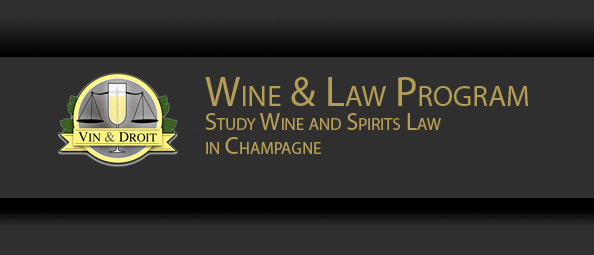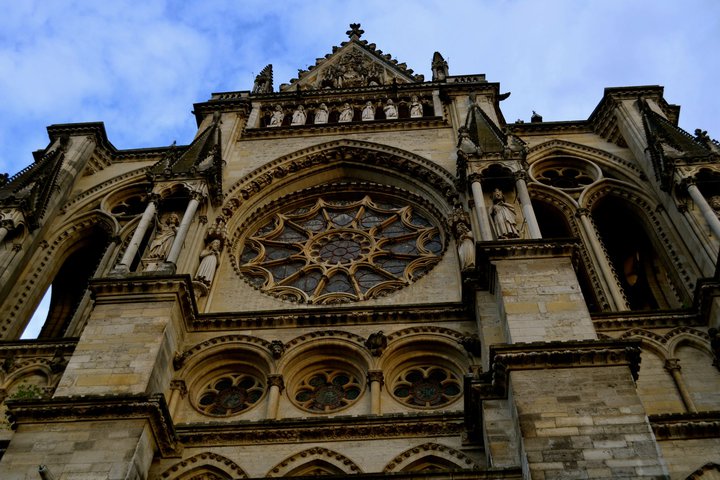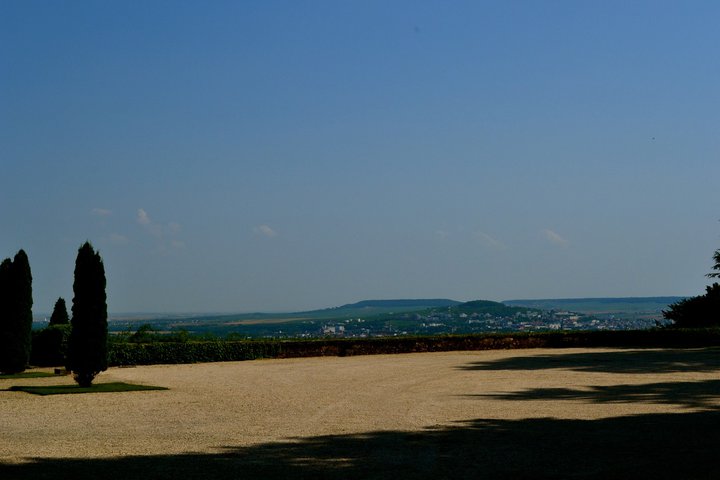The winter months in New York make me long for—and think about—warmer days. When I reflect about my past summer, I think a lot about my trip to Reims in the Champagne region of France last June through July, and the experiences I had at the 2011 Wine & Law Program at the Université de Reims Champagne-Ardenne. I met several colleagues with interesting and diverse experiences in the wine industry and I was fortunate to study under some of the most respected academics whose scholarship is credited throughout many areas of the wine industry. This program solidified my interest in wine and the law; the research I spent many months collaborating for my Note in law school, as well as the research for this blog, grew breath and meaning in a classroom with others who studied or were interested in similar topics. As my last semester in law school comes closer to an end each day, I remember my time in Reims quite fondly and I can only hope to return to the region one day for another academic venture.
 This summer, the 2012 Wine & Law Program Summer School’s topic is Comparative Aspects of European Union and United States Wine Law. The Program is from July 2, 2012 through July 13, 2012 at the Université de Reims Champagne-Ardenne and applications for the Program are currently being accepted. This is the third year for the Program, which is directed by Professor Theodore Georgopoulos, and features returning instructor and Master of Wine Mr. Steve Charters, as well as instructors Ms. Tracy Genesen of Kirkland & Ellis LLP and Mr. Barton Selden of Gartenberg Gelfand Hayton & Selden LLP. (See Wine & Law Program Faculty.) Ms. Genesen’s legal experience in the wine industry ranges from serving as the litigation strategist for the famous United States case Granholm v. Heald to lecturing about “Wine and Law” at Stanford Law School. (See id.) Mr. Selden’s experiences focus strongly on trademarks and international business issues related to the wine industry, as well as financing and distribution issues related to the wine industry. (See id.) With such strong faculty on the roster, as well as an engaging topic in one of the most beautiful wine regions, I am sure the 2012 Wine & Law Program will be very successful.
This summer, the 2012 Wine & Law Program Summer School’s topic is Comparative Aspects of European Union and United States Wine Law. The Program is from July 2, 2012 through July 13, 2012 at the Université de Reims Champagne-Ardenne and applications for the Program are currently being accepted. This is the third year for the Program, which is directed by Professor Theodore Georgopoulos, and features returning instructor and Master of Wine Mr. Steve Charters, as well as instructors Ms. Tracy Genesen of Kirkland & Ellis LLP and Mr. Barton Selden of Gartenberg Gelfand Hayton & Selden LLP. (See Wine & Law Program Faculty.) Ms. Genesen’s legal experience in the wine industry ranges from serving as the litigation strategist for the famous United States case Granholm v. Heald to lecturing about “Wine and Law” at Stanford Law School. (See id.) Mr. Selden’s experiences focus strongly on trademarks and international business issues related to the wine industry, as well as financing and distribution issues related to the wine industry. (See id.) With such strong faculty on the roster, as well as an engaging topic in one of the most beautiful wine regions, I am sure the 2012 Wine & Law Program will be very successful.

Early registration is through April 30, 2012, although a second registration session may be available through June 14, 2012. (See Wine & Law Program Practical Information.) The Program lasts two full weeks in Reims and features classroom work every weekday from 9 AM to 4 PM with outside trips to the region after class hours. The trips last year included visiting local landmarks, vineyards, and maisons to learn about the history of the region and the process of producing Champagne, and to speak with individuals knowledgeable about the legal aspects of producing Champagne. We visited some of the larger Champagne houses (maisons) and their caves, including Ruinart and Moët & Chandon, as well as the Champagne cooperatives and smaller Champagne producers in Vertus. One evening we traveled to the Comité Interprofessionnel du Vin de Champagne (“CIVC”), the trade organization that controls the production of Champagne within the region. Our graduation dinner was at Veuve Clicquot’s Manoir de Verzy, or the country house of Madame Veuve Clicquot, and the meal itself featured several courses paired with different champagnes bottled by the maison. Each trip fit very well with what we learned throughout the day in our classroom and provided all of us with a unique understanding of the region and the production of Champagne.
The university is located on the outskirts of the city of Reims, but is easily accesible by the tram. When I attended the program, I stayed in the heart of Reims and took the tram to and from the university every day, which was quite convenient. Several of my colleagues rented apartments either in the city of Reims or on the outskirts, which is also an alternative option. The hotel I stayed at sat directly across from the Reims train station, which was optimal for weekend trips to surrounding areas of Reims. During my stay, I traveled to Paris, Épernay, Vertus, Strasbourg, and a few smaller towns. There are many other options for trips and travel ventures on the weekend or if you extend your stay.

A course devoted exclusively to wine and the law (or to alcohol beverages and the law) is a rarity in American law schools. Such classes do exist, but the majority of American law schools do not feature even a lecture exploring the legal overtones of the alcohol beverage industry. While this is rather unfortunate, it is my hope that our law schools will one day feature a larger avenue for individuals with such an interest. Until then, I can honestly affirm my attendance at the 2011 Wine & Law Program was the apex of my law school career. That is not to imply my law school experience was unfavorable; my strongest academic interest simply lies with alcohol beverage law. I encourage anyone interested in the legal environment of the wine industry, even if not an attorney, to apply to this program. During my session, I was the only law school student in attendance, but there were several other attorneys in the program. There were also individuals with professional ties to the wine industry who were not attorneys. I can only speak favorably about my experience last summer at the Wine & Law Program, and if there are any questions regarding the experience I had last summer, I very much welcome them.
(First Image Credit: Wine & Law Program. Remaining images property of Lindsey A. Zahn.)